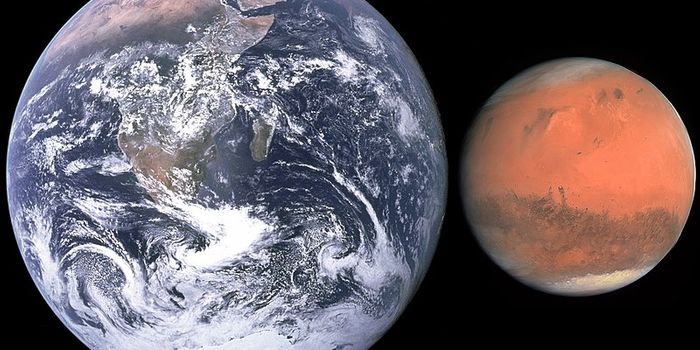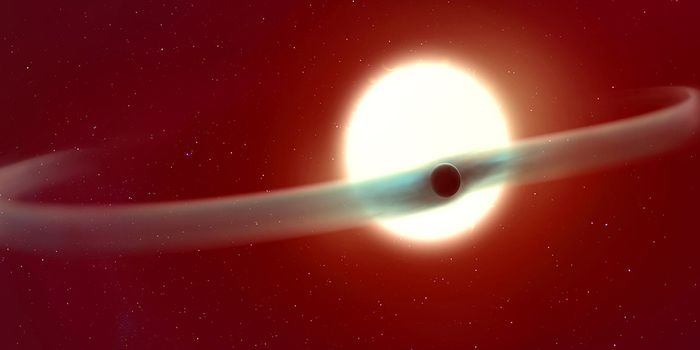Earth-Like Exoplanet Could Possess Magnetic Field
In a recent study published in Nature Astronomy, a team of researchers examined an Earth-sized exoplanet located only 12 light-years away, YZ Ceti b, which could possess a magnetic field much like the Earth. Since our own magnetic field is responsible for deflecting plasma and high energy particles emanating from our Sun, this study could bring scientists one step closer to finding a life-bearing world outside our own solar system.
Artist rendition of magnetic interactions between a close-orbiting exoplanet and its parent star. (Credit: Alice Kitterman/National Science Foundation)
"The search for potentially habitable or life-bearing worlds in other solar systems depends in part on being able to determine if rocky, Earth-like exoplanets actually have magnetic fields," said Dr. Joe Pesce, who is the program director for the National Radio Astronomy Observatory. "This research shows not only that this particular rocky exoplanet likely has a magnetic field but provides a promising method to find more."
Detecting magnetic fields around exoplanets has proven to be tricky since magnetic fields are invisible, explains Dr. Jackie Villadsen, who is an Assistant Professor of Physics & Astronomy, and co-author on the study. On Earth, the magnetic field is generated from the spinning outer core deep inside our planet, which could be the case for YZ Ceti b. However, the radio waves detected by the researchers are unusually strong for an exoplanet of this size, so a different method in understanding them is required.
"What we're doing is looking for a way to see them," said Dr. Villadsen. "We're looking for planets that are really close to their stars and are a similar size to Earth. These planets are way too close to their stars to be somewhere you could live, but because they are so close the planet is kind of plowing through a bunch of stuff coming off the star. If the planet has a magnetic field and it plows through enough star stuff, it will cause the star to emit bright radio waves."
Given the very small orbital period of YZ Ceti b around its parent star of only two days, this could explain the uniquely-strong radio waves it produces. For context, the shortest planet orbital period in our own solar system is Mercury at 88 days. While the researchers concluded that YZ Ceti b is the most ideal candidate to date for a rocky exoplanet that possesses a magnetic field, more research is still required to come to a firmer conclusion.
"This could really plausibly be it," said Dr. Villadsen. "But I think it's going to be a lot of follow-up work before a really strong confirmation of radio waves caused by a planet comes out."
Going forward, Pineda says, "There are a lot of new radio facilities coming online and planned for the future. Once we show that this is really happening, we'll be able to do it more systematically. We're at the beginning of it."
What new discoveries will researchers make about exoplanet magnetic fields in the coming years and decades? Only time will tell, and this is why we science!
Sources: Nature Astronomy, National Science Foundation
As always, keep doing science & keep looking up!









